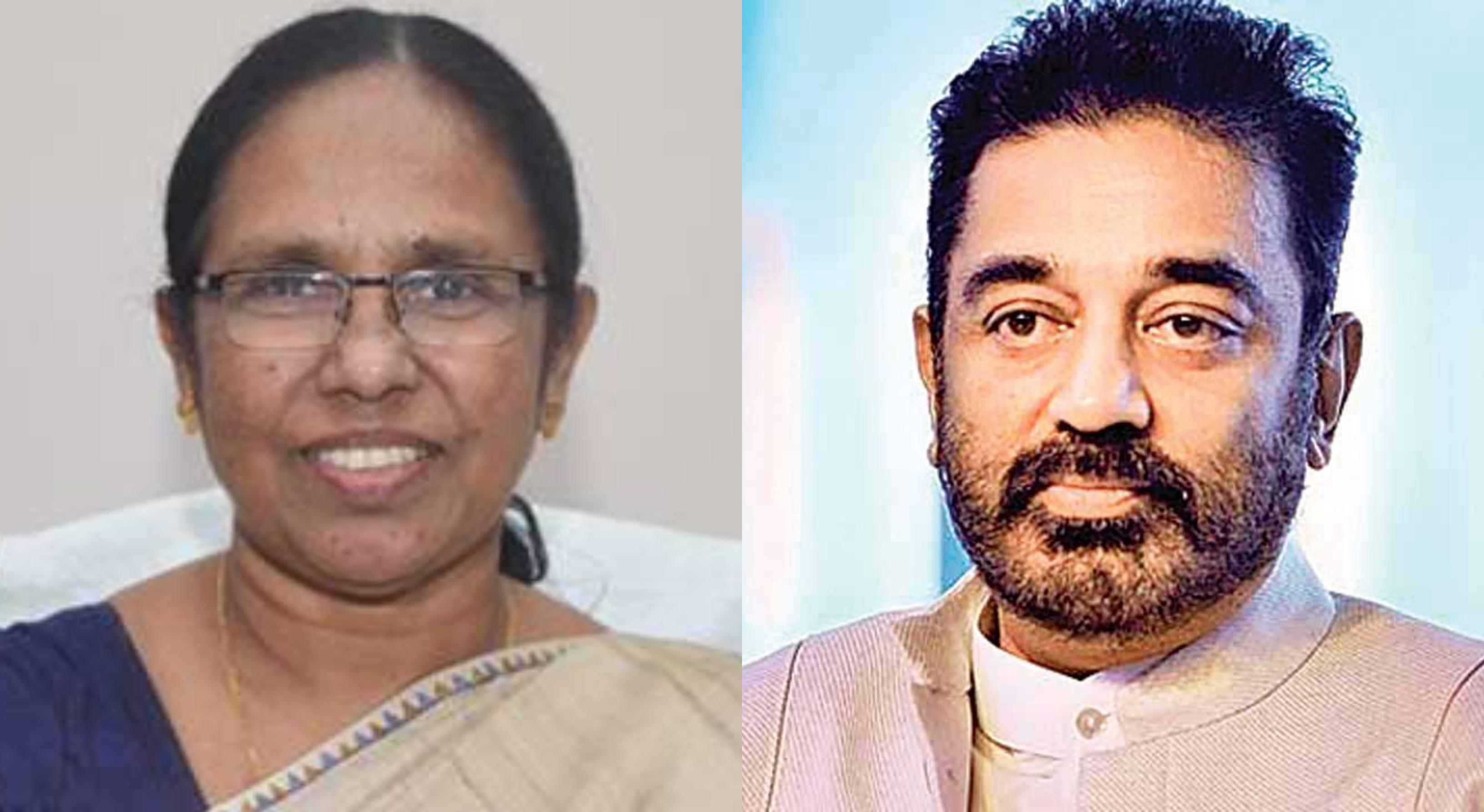
Decentralisation, Kerala’s key to arresting Covid: Shailaja tells Kamal
Kerala’s health minister KK Shailaja, also known as Shailaja Teacher who has been credited for the state’s effective containment of COVID-19, has ascribed the success to decentralised planning.

Kerala’s health minister KK Shailaja, also known as Shailaja Teacher who has been credited for the state’s effective containment of COVID-19, has ascribed the success to decentralised planning.
Shailaja, fondly known as the ‘Coronavirus Slayer’ of Kerala, was speaking at a live social media discussion on the topic ‘Post Covid Scenario on The New Normal’, organised by Makkal Needhi Maiam (MNM) on Sunday (May 31). She said the process of decentralisation enabled the state health department to begin taking steps to thwart the spread of the disease as early as January, even before it was declared a pandemic by World Health Organisation (WHO).
“In Kerala, we have decentralised planning from 1957. Adding to that, our chief minister, a man of decision making has been supportive towards our department’s activities. We heard about COVID-19 in January 18. At that time, WHO had not announced it as a pandemic. But we took pre-preparedness activities nonetheless. On January 24, we set up a control room and in January 27, we received the first flight from Wuhan. Our children were studying there. Keeping that in mind, we started screening and three students tested positive for COVID-19. We continued the efforts. But many criticised me saying that I was overacting,” she said.
Related news: From lockdown 4.0 to Unlock 1: India’s COVID-19 progress report
Shailaja recounted how her government supported the department during the NIPAH virus outbreak in 2018.
“We came to know about a medicine called human monoclonal antibody. It is a medicine developed in Australia which was not tested or patented. But we heard it can neutralise the NIPAH virus. When we conveyed this to our chief minister, he immediately took steps to airlift it. But the state needed the support of the Centre and the Australian government to get the medicine. So, our CM got in touch with the Centre and the Australian government for the same and we were able to import the medicine. However, we did not test, as at that time we had only two NIPAH virus patients who were cured with the help of medicines administered earlier,” she said.
The Kerala health minister said the third wave of the COVID-19 spread in Kerala was due to the return of people from Maharashtra and Chennai, two areas with high COVID-19 cases.
Moderated by MNM founder and actor turned politician Kamal Haasan, the discussion was also attended by Dr Raman Laxminarayan, founder and director, Centre for Disease Dynamics, Economics and Policy, and psychiatrist Shalini.
Raising the issue of migrant labourers, Haasan said it reminded him of Partition and that government should have borne all the expenses to send migrant workers home in trains.
“I would say India is a developed country now. We are no more a third-world country. I am always appreciative of the railways for their efforts, especially of their decision to convert coaches into wards. But when I see the migrants walking because of lack of money to buy tickets, it reminds me of Partition days. The government should have taken it as a duty to bear all the expenses and send them home in trains,” he said.
Dr Raman Laxminarayan said the high infection rate was witnessed in major cities with airports after flights landed from abroad with COVID-19-positive people.
“This is the disease that came through flights. That is why major cities like Chennai, Goa and states like Kerala were affected. These destinations used to receive international flights. But the same did not happen in Bihar or Uttar Pradesh,” he said.
He, however, rued that the Centre did not show the same enthusiasm to send migrants back to their home as it displayed while evacuating Indians from abroad.
Psychiatrist and writer Shalini said the government should have consulted people before imposing the lockdown.
Related news: We cooperate with Centre, but no compromise on state’s interest: Pinarayi
“Before the lockdown was announced, the government should have known the opinions of the people. But it doesn’t happen here. In our country, we always have one-way communication. That is, people need to obey the government’s order and not the other way round,” she said.
Given the isolation and lack of social life that has come with lockdown, the psychiatrist said the only way to keep one’s mental health in good state is to “take care of yourself first”.
“Build your immunity and consult doctors through online regarding your wellness. Many think wearing mask is disrespectful. But, we need change that notion,” she said.


